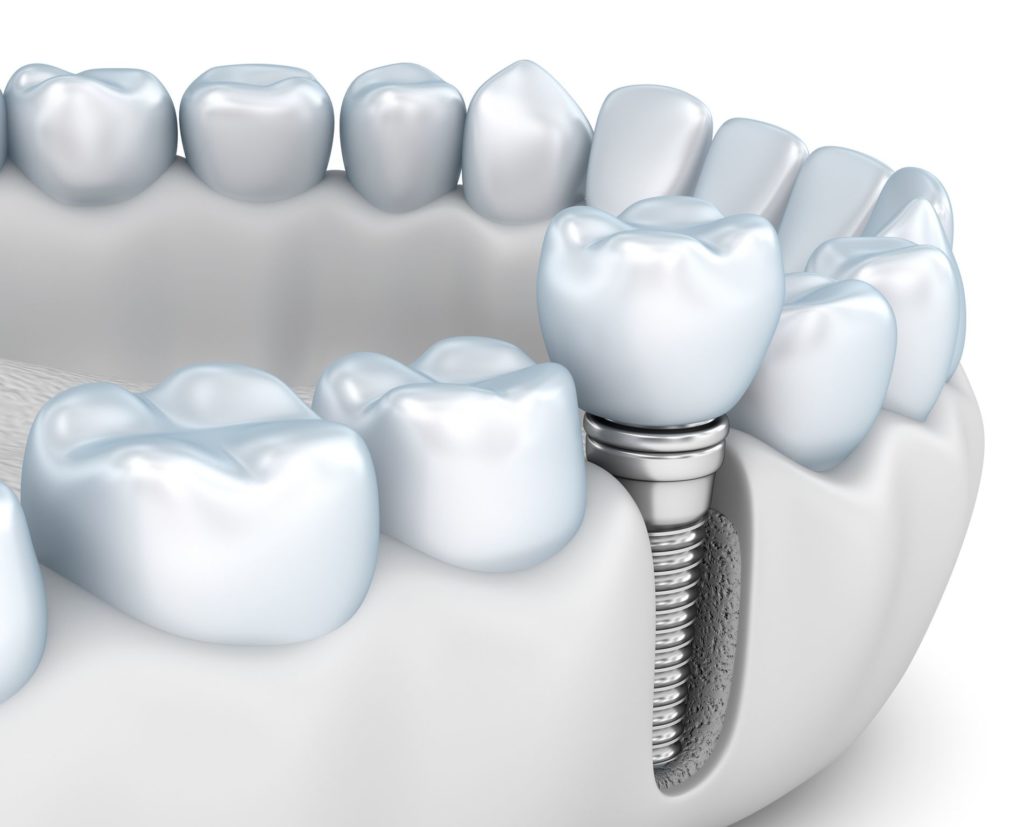Tooth loss affects millions of Americans, disrupting the look of their smiles as well as their oral functions. But without tooth replacement treatment from their dentist, missing teeth may create further dental issues.
Dental patients can find permanent tooth replacement with dental implants. These fixtures have the added benefit of stopping deterioration in the teeth and jaw that removable solutions cannot address. Read on to learn about the effect that dental implants can have on your jawbone in the aftermath of tooth loss.

How Will Implant Dentistry Help My Jaw?
What Happens to Jawbone When You Lose a Tooth?
Healthy dental patients have teeth that extend to roots below the gumline. They reach down to the jaw and stimulate the bone there, keeping it strong and stable.
If a patient loses one or more teeth, certain sections of the jawbone no longer receive stimulation. In its absence, the bone begins to deteriorate. It will not regrow on its own and will continue to do so as tooth loss remains untreated.
This will result in the appearance of sagging in the dental patient’s face. It can also cause a patient’s remaining teeth to shift out of place and suffer more dental issues.
How Do Dental Implants Affect the Jawbone?
The fixed tooth replacement solution, the dental implant, offers unique preventative dental care compared to other treatment options. The fixture features a titanium post that serves as an anchor for the implant.
A dentist inserts this anchor into the jaw through oral surgery. Later, the dentist attaches a prosthetic crown, bridge, or denture to this anchor above the gumline according to your dental needs.
As you heal, the anchor fuses to the jawbone and serves as a replacement for the missing tooth root. The bone receives stimulation once again and will no longer erode. The fixture also encourages bone that was already lost to regenerate.
Patients can not only see enhanced looks and capabilities in their smiles with implants. They can also see the prevention of jawbone loss as well. With proper care, implants will provide these advantages for twenty or more years. Removable dentures cannot offer this benefit because they do not treat tooth loss below the gumline.
Can My Jaw Support a Dental Implant?
Though highly beneficial, not every patient can qualify for tooth replacement with dental implants. The dentist must surgically place an anchor into the jaw. So there must be enough bone in the jaw to perform this procedure.
If too much bone has already deteriorated due to tooth loss, you might not be able to successfully receive this dental fixture. Your dentist can check your jawbone health using x-ray imaging during your consultation appointment.
If you need more support in the jaw, your dentist may suggest a bone graft. This will add structure to the jawbone that might sustain an implant after it heals. If this treatment is not feasible, they may recommend alternative tooth replacement options.
